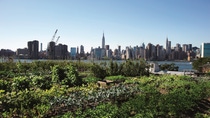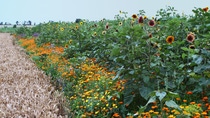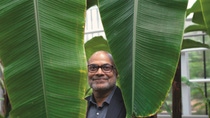Sharing knowledge and improving lives
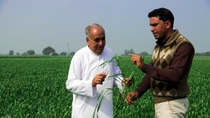
Half of India’s population works in agriculture and the country has the largest area in the world growing wheat, rice and cotton. Yet yields in many areas are below the global average. An innovative project run by BASF is bringing expert knowledge to small farmers, enabling them to increase their productivity in a sustainable way.
The vast majority of farmers in India have small farms that generate little income. Unlike farmers who cultivate high-value cash crops for export markets, small farmers do not have access to the latest technologies and expertise. Which is why the BASF Crop Protection team came up with the idea in 2006 of helping farmers and their communities to make agriculture more sustainable. They called the program Samruddhi, meaning “prosperity” in Sanskrit.
Traditionally, BASF has sold pesticides to farmers in India through distributors and retailers. The idea behind Samruddhi is to build a sustainable business partnership directly with the farmers themselves. By working with them throughout the season – from planting, to harvest and market days – by visiting them at their farms, giving individual advice, doing practical on-field demonstrations, and teaching larger groups at town halls, BASF agronomists give the farmers the means to start measuring their costs, increasing their yields and improving their earnings.
“Samruddhi is a classic example of how BASF partners with its customers to ensure sustainable business operations by taking into account the entire ecosystem and enhancing the yield levels for farmers.”
Sandeep Gadre, Head of Business South Asia, BASF Crop Protection
The program has been a huge success and has grown rapidly since its launch. In 2012, over 180,000 soybean farmers participated in Samruddhi and the idea has expanded to include other crops as well. In 2008, BASF established a call center so that advice can also be offered over the phone to Samruddhi farmers.
Part of the program’s success stems from its holistic approach. The advice offered by the 700 BASF agronomists covers every aspect of the farm business, from seed treatment, planting methods, safe and responsible use of pesticides, through to the harvesting of crops.
Radhashyam Patidar is a soybean farmer in Bhesoda in the state of Madhya Pradesh. The 45-year-old has worked the land for 18 years. He first became involved in Samruddhi in 2009. “What inspired me about the program was that it offers a complete solution from seed to seed,” he says. The results for him have been impressive – he now gets an additional yield of 500 kg per hectare from his land. And he is not alone. On average, in 2012, Samruddhi soybean farmers achieved a 25% increase in yield and a 39% increase in net profit, compared to non-Samruddhi farmers.
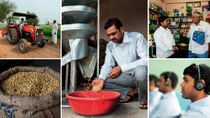
“As a Margdarshak, I am a source of knowledge for other farmers, which is a matter of pride for me.”
Radhashyam Patidar, soybean farmer in Bhesoda
Key to the program is ensuring that the improvements are spread as widely as possible. It is therefore a basic principle of Samruddhi that the knowledge given to one farmer in a village is passed on to neighboring farmers. Known as “Margdarshaks” the lead farmers in a village not only share the experience and knowledge they have gained, but also help coordinate BASF visits, invite their neighbors to meetings and collect questions and concerns. In 2012, Patidar took on this role for his community. “As a Margdarshak, I am a source of knowledge for other farmers, which is a matter of pride for me,” he says.
The program is also aimed at improving eco-efficiency. By following the Samruddhi advice, participating farmers have been able to grow soybeans in a more environmentally friendly way, using less land, consuming less energy and fewer resources.
“Samruddhi is a classic example of how BASF partners with its customers to ensure sustainable business operations by taking into account the entire eco-system and enhancing the yield levels for farmers,” says Sandeep Gadre, Head of Business South Asia, BASF Crop Protection. “Through this process, BASF makes a difference to the lives of the agricultural community.”
